21 Free SEO Tools and How to Use Them
While SEO as a concept is simple (optimizing web pages to perform better in search engines), it can be a surprisingly complex operation. The SEO veterans have many different tools in their belt that they use almost every day during their normal routine.
The great part of the SEO industry is that there is a tool for virtually every task imaginable. This means that you can either fully automate or drastically cut down on the time it would take to perform tasks manually.
The downside to this, however, is that those subscription costs start to pile up. Tool/SaaS providers all want that recurring income from their product, and that means that even relatively affordable tools ($10/month) can become burdensome on your operating budget.
However, there are still free tools available covering nearly every aspect of SEO work.
In this post, we are going to talk about 21 FREE SEO Tools covering:
- Technical SEO and Crawlers
- Page Speed Analysis
- Keyword Research
- Google Analytics
- Rank Tracking
- Conversion Rate Optimization
- Structured Data
Technical SEO/Crawler Tools
Technical SEO refers to laying a strong foundation for your content to rank for relevant keywords and phrases. Being a technical SEO specialist, I’ll start off this list with my favourite free technical SEO tools. Let’s dig into it!
#1 Screaming Frog
Screaming Frog is my #1 favourite SEO tool. It’s an SEO Spider that will crawl your website, your competitor’s website, or simply a list of URLs, and return all the pertinent information (Metadata, load speed, response codes, in-links and out-links, all that good stuff).
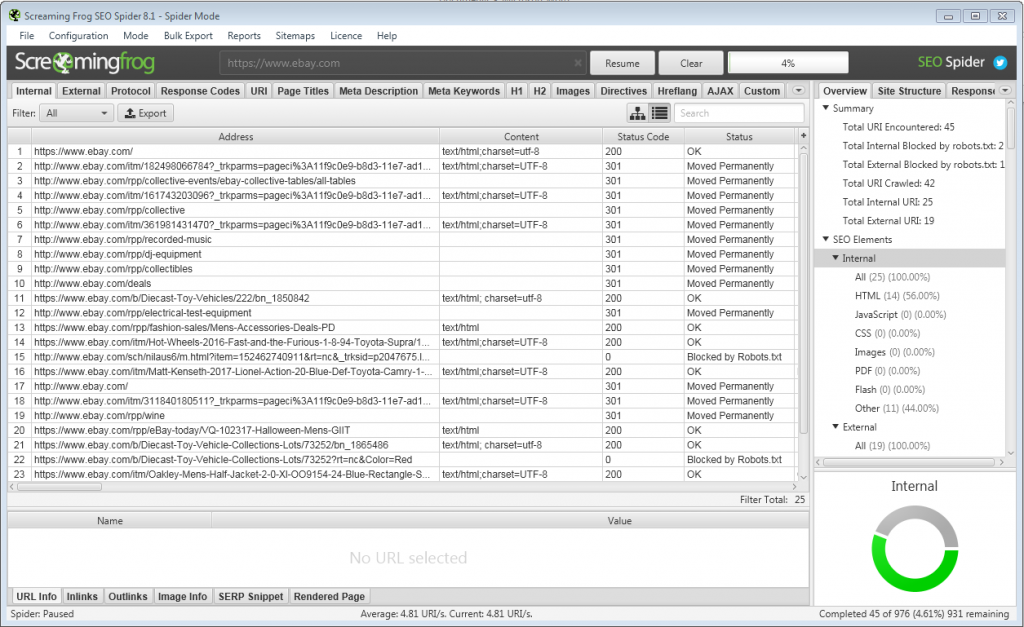
This thing has it all. When it comes to side audits, on-page SEO or even competitive research, it’s the tool to be used.
While it’s got a paid version (at 150GBP/yr.), it’s got a very useful free version that allows crawling up to 500 URLs.
#2 Seomator
Seomator is a smart and easy way to get an online SEO Audit. It provides you with SEO performance analysis and “how to fix tips” to all of the issues that were found. You can simply download ready PDF Report and present it to your customer or use it as a work- schedule. If you want to get a quick analysis of your website than Seomator is exactly what you need.
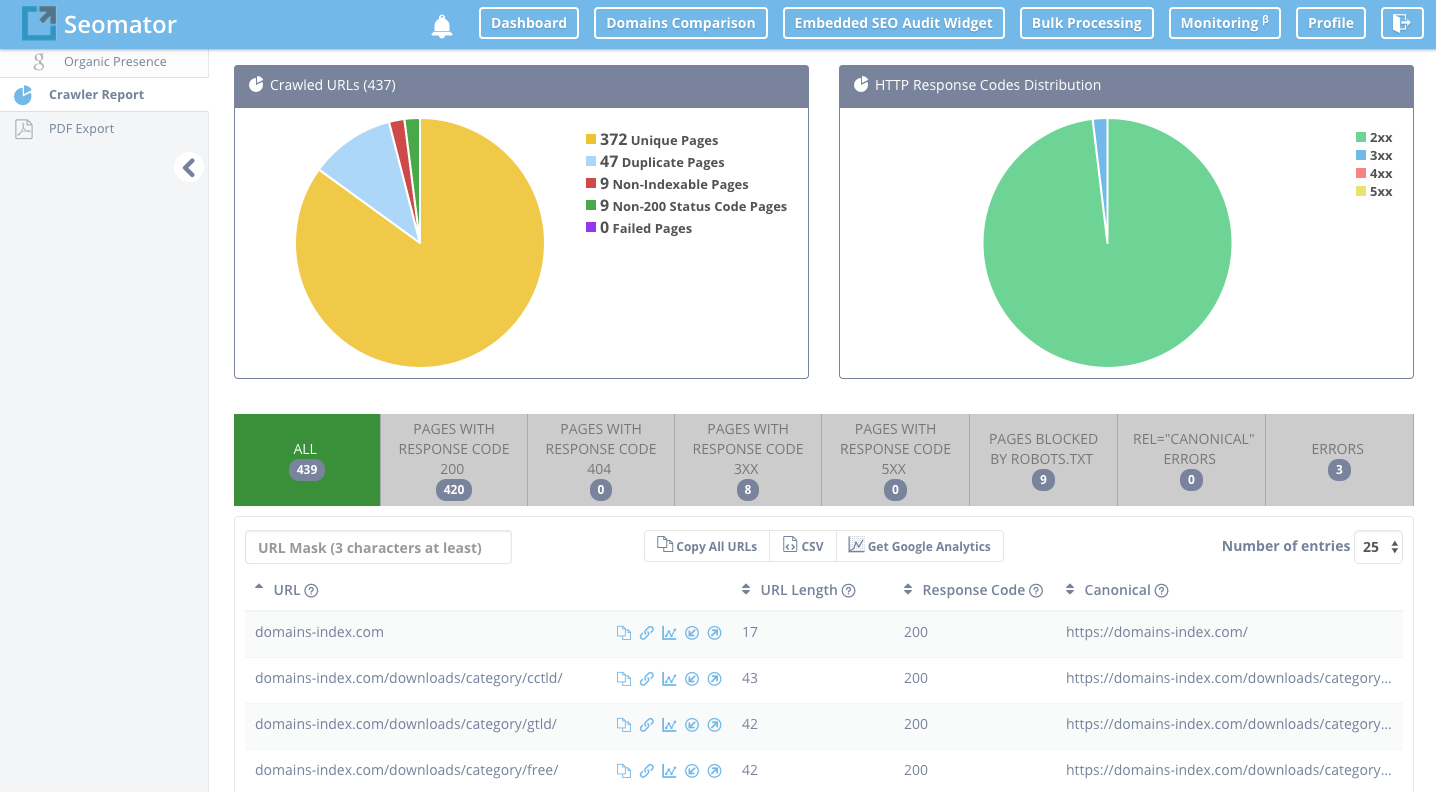
Also, it has SEO Monitoring Alerts option that performs auto-schedule crawling tasks and gives you an opportunity to constantly track any changes in a website’s SEO life. Furthermore, using Seomator Domain Comparison tool, you can easily compare two competitors’ websites in 10 minutes. After that, you will be able to offer one of them a quick decision about SEO improvements.
#3 Xenu Link Sleuth
One of the originators of publicly available crawlers, Xenu link sleuth probably holds a warm place in the hearts of SEO veterans. Dating all the way back to the early 2000’s, it was one of the first tools that could crawl a site just like a search engine would.
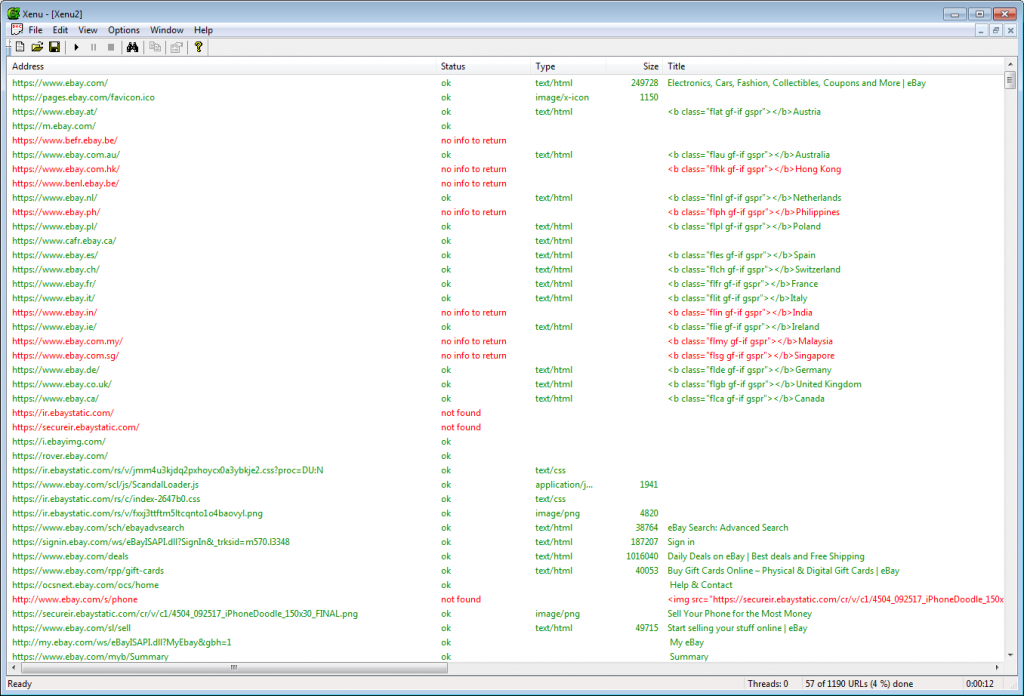
Used primarily for tracking down Broken links on your site, Xenu isn’t as fully featured an SEO tool like Screaming Frog, but it is free for full use (i.e. there’s no paid version). It’s very helpful if you have a very large site you’d like to crawl, but don’t want to pay for a full-featured spider tool.
#4 Header Checker
Online header checkers are really good to use in a pinch. They take a URL and return back the HTTP headers sent from the server.
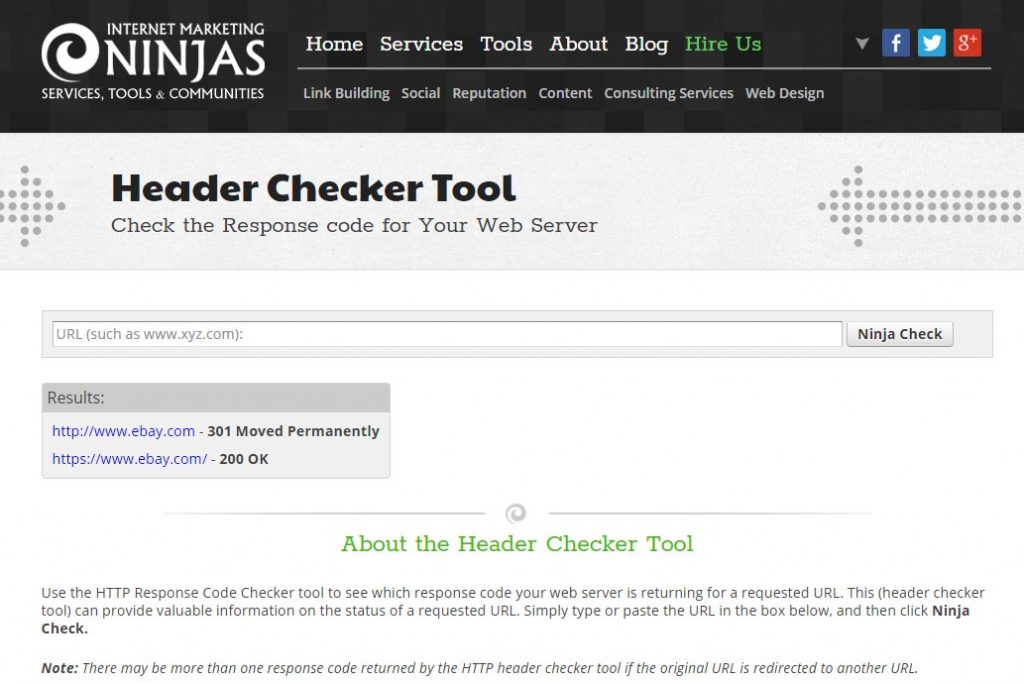
This is really handy if you need to figure a site is 301ing vs 302ing, or if there are redirect chains.
#5 Redirect Path
Similar to header check, Redirect Path is a Chrome plugin that allows you to see the redirects that occur whenever you load a page.

What makes this plugin super useful is the fact that it will flag Meta Refresh and JavaScript redirects (which often go undetected otherwise).
#6 Browseo
Browseo is a very interesting take on the SEO crawler. It will take URL and spit out how it appears to search engines, both from a visual hierarchy perspective (H1 tags, UL/OL lists, etc.) and also includes the Metadata and content stats (word count, link count) for easy analysis.
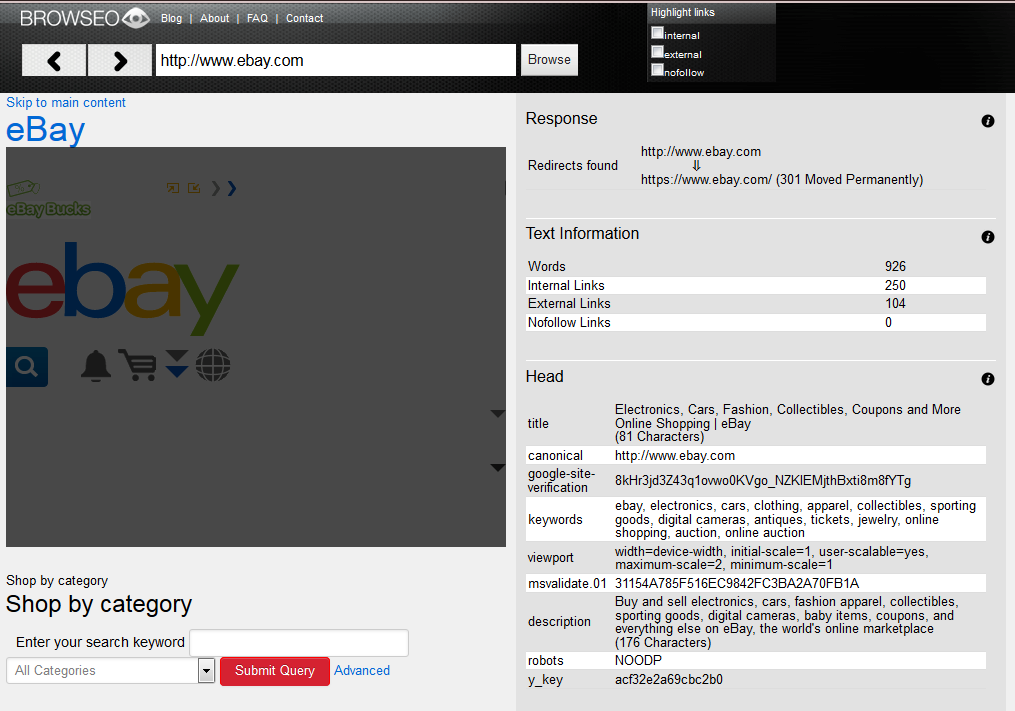
The on-page structure is often underemphasized by many website owners, even SEO veterans. This will allow an easy breakdown and analysis and highlight any shortcomings of your on-page hierarchy. It’s unique, and something that Screaming Frog and Xenu don’t provide.
A side note: Bing Webmaster Tools has a similar feature which shows you the content a spider sees. This is very useful in diagnosing hacks, malware or cross-site-scripting/SQL injections (i.e. content that wouldn’t appear to the human visitor).
#7 Firebug
Firebug was a trailblazer in the early years of Web 2.0. It was amazing at the time, the ability to “inspect” any element on a page in order to examine the CSS, HTML, DOM, as well as getting information on the pages server response.

These functions were then adopted by Chrome and Firefox, and are now native to those browsers. Firebug itself has merged with Firefox development edition.
Page Performance Tools
Now we move on to something that is very much “in vogue”, i.e. page speed tests and optimization. Not only has Google stated that page speed can be a ranking factor, but the prevalence of mobile devices and impatient users have made speed crucial for an optimal user experience as well as conversion rate optimization (CRO).
The good news is that several tools have popped up to help diagnose page speed issues, including some from Google itself.
#8 Google PageSpeed Insights
Google PageSpeed insights is the gold standard when it comes to Page Speed analysis.
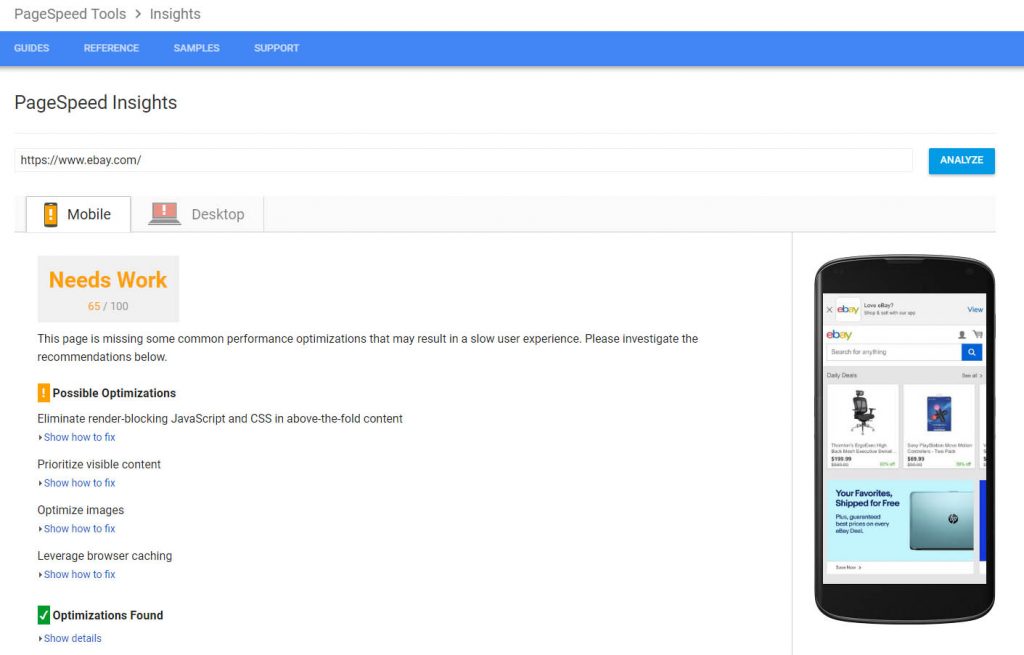
As you can see from the screenshot above, Google defaults to Mobile and not desktop. This is indicative of the larger “Mobile-first” mentality that Google is pushing forward.
The tool will give you a score (for both Desktop and Mobile), from 0 to 100. It then provides optimization tips for you to improve your score. If you are handy as a web developer, you can implement those tips yourself, but if not, be sure to contract someone qualified to implement them.
#9 GTMetrix
GTMetrix attempts to do the same diagnosis as the Google PageSpeed tool, but it provides a bit more granular insight into the page request itself.
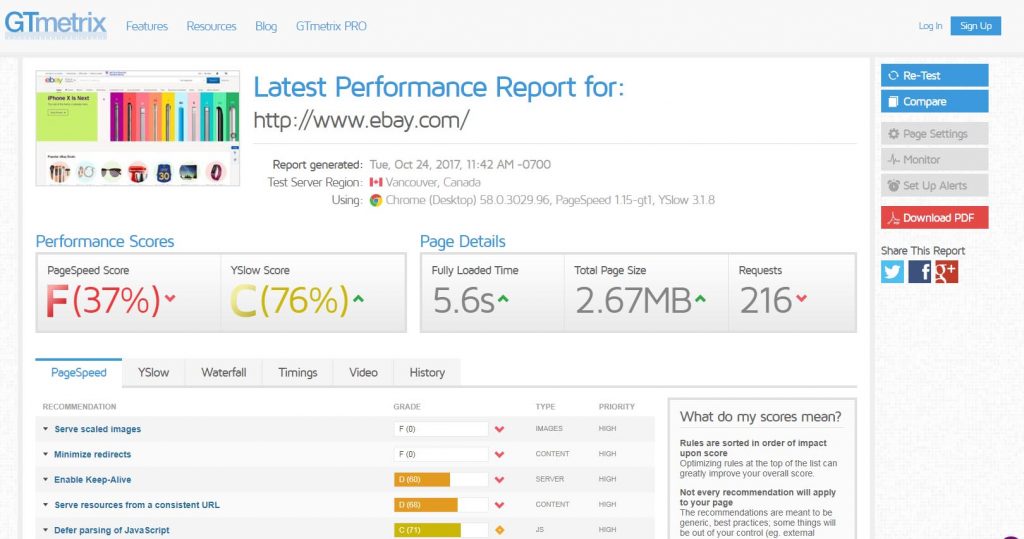
As you can see, it gives you specific load time, page size and the number of unique requests necessary for the page to load. It also gives you the test server region, which is helpful if you are trying to optimize your content via a CDN or for a specific geographic region.
Careful not to take the load time too literally, because it will shift over time (more accurate would be an average site speed over many thousands of requests).
#10 Pingdom Pagespeed Test
Pingdom’s been around for years, long before Google implemented their Pagespeed tool.
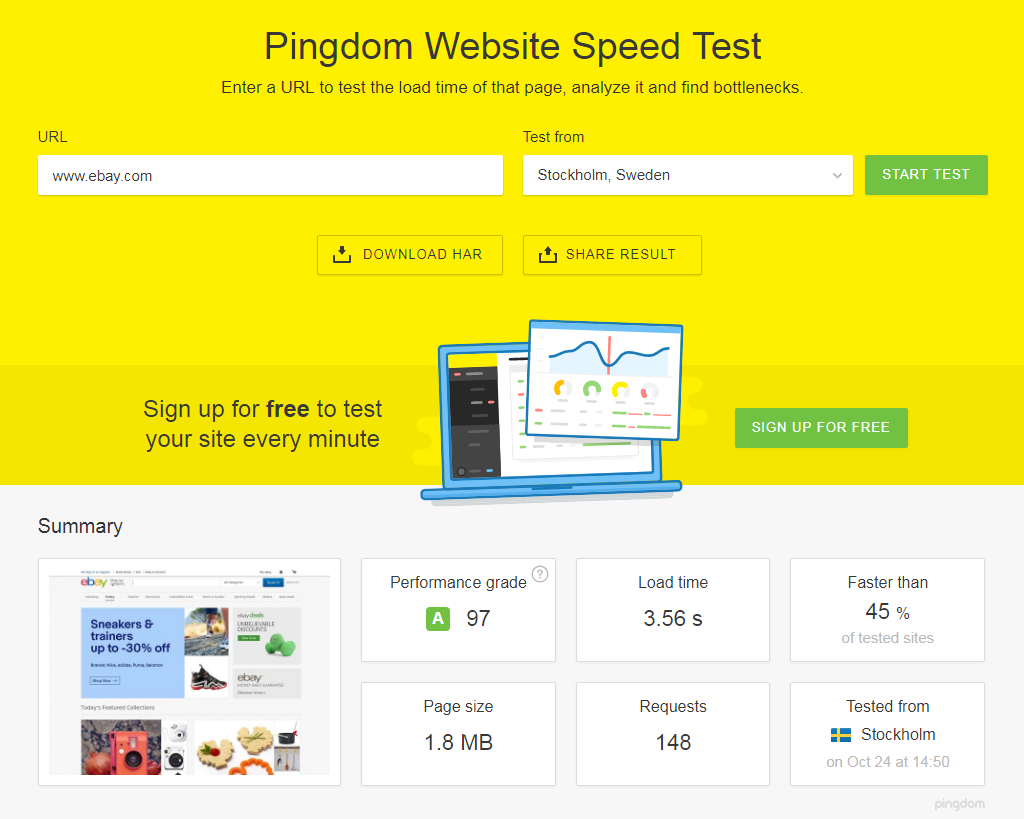
All the recommendations are not shown in the screenshot, but it includes pretty much all the breakdowns of performance insights, response codes, waterfall requests, etc.
One thing that stands out is the ability to change the location of the test server. It defaults to Stockholm, but you can also choose Melbourne or San Jose.
Want to take your business to the next level? Enroll for free growth hacking course and become an expert growth marketer. Enroll Now!

Keyword Research Tools
Keyword research tools become increasingly important ever since Google decided to limit its keyword planner data to people with active AdWords spend.
Thankfully, we can still get lots of research done using free tools. Let’s take a look!
#11 Keywords Everywhere
This is hands down the most useful chrome plugin I’ve ever used. Here’s how it works:
Using the Google AdWords API, it pulls in keyword and CPC data automatically whenever you do a Google search, and shows it right on the SERP!

Also, it pulls in keyword volumes for all the related keywords.

You can “star” any keyword that interests you, and the plugin will store those for you which you can then export later to do your analysis.
In addition to integrating with Google Search results, it will also integrate with Amazon, and even other Keyword research tools like Ubersuggest.
#12 UberSuggest.io
Ubersuggest, to my knowledge, was the first tool of its kind. It takes a seed keyword and scrapes Google’s search suggestions, spilling out all the juicy keywords for you to analyze. There are other tools that have come to do similar things, but to the best of my knowledge, this was the originator.
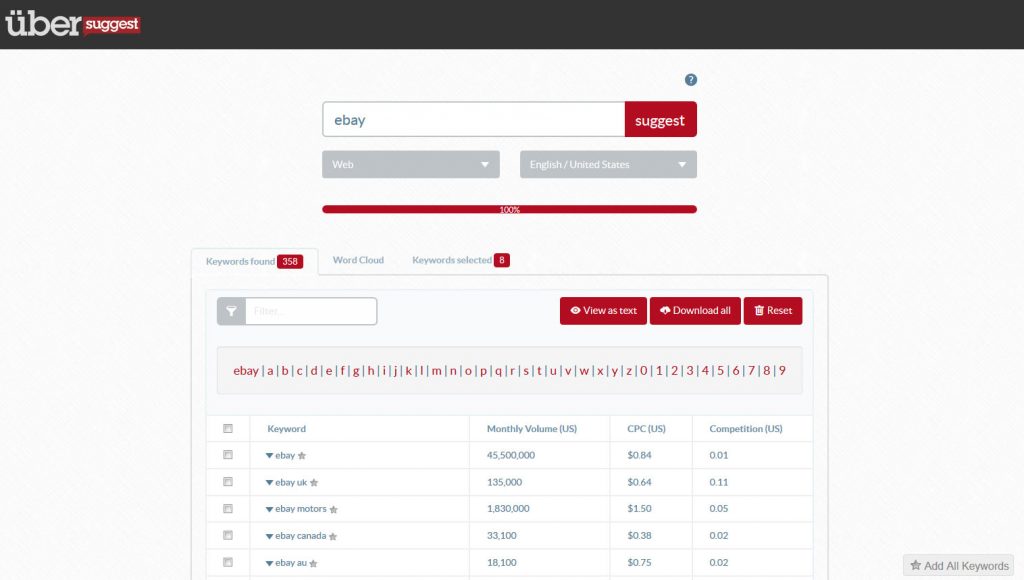
As mentioned above, you can use in conjunction with Keywords Everywhere to get search volume numbers without needing an active AdWords account.
#13 AnswerthePublic
Another innovative use of Google’s search suggests data is Answer the Public. This tool takes a seed keyword, just like Ubersuggest, but unlike Ubersuggest it pairs it will all common “question words” (i.e. what is, who, etc.), as well as prepositions and other words to generate a list of keywords that are all related to inquiries.
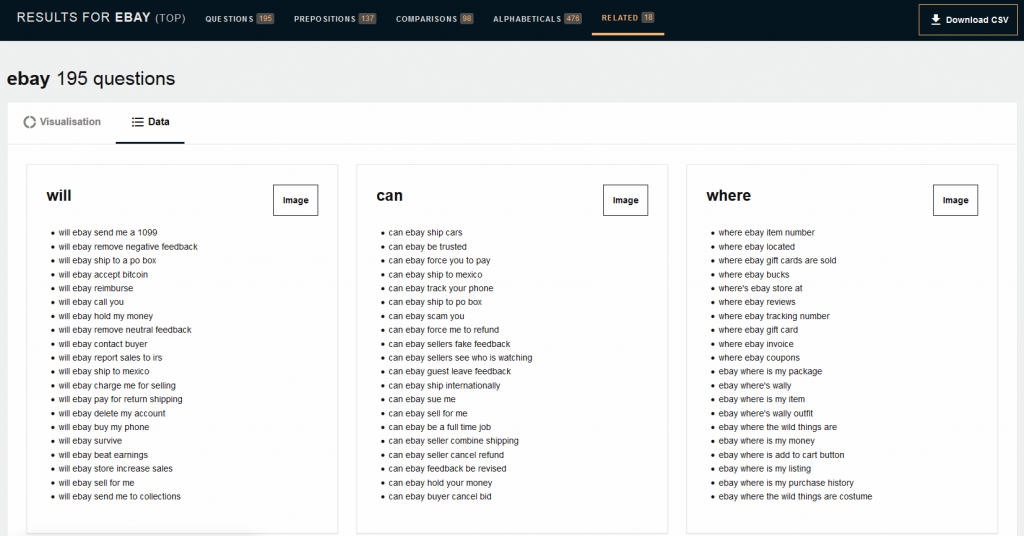
So while Ubersuggest will give you every keyword that pops up in the search suggest, Answer the Public will give you all the questions that pop up.
This is extremely useful for putting together a content marketing strategy, discovering new user needs, or simply looking for inspiration on what articles to write next.
Analytics Tools
This might seem like a silly section for anyone familiar with Internet Marketing since there is really only one free analytics provider that anyone cares about.
It’s true, Google Analytics is the gold standard, but it doesn’t give you insights into your competition. For that, there are a few other free options.
#14 Google Analytics
The industry standard for analytics packages happens to also be completely free. Google Analytics is easy to set up: simply sign up for an account and follow the instructions. Once you have included a tracking code on your site (all pages you want to track), you’ll be able to start seeing live activity tracking for all the visitors of your site.
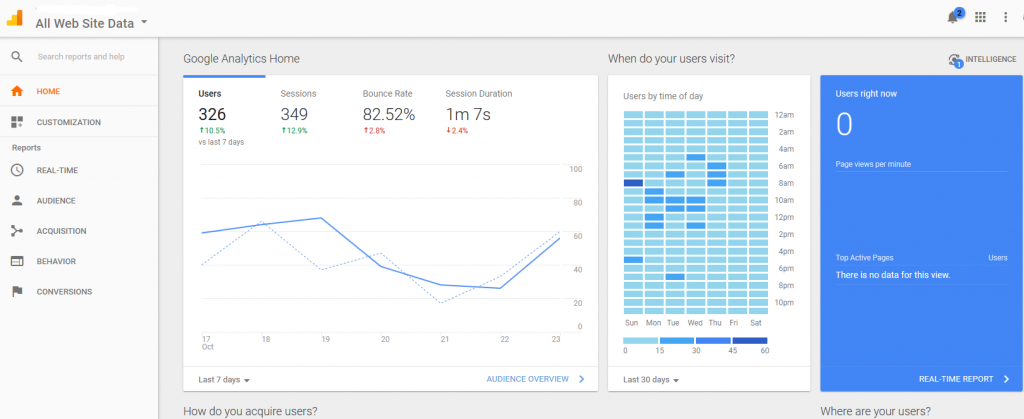
The full use of GA goes well beyond the scope of this article, but if you want to learn how to use it to its full potential, consider taking the Google Analytics Individual Qualification (IQ) Course.
#15 SimilarWeb
SimilarWeb is really a marvel of competitive analysis. It has astoundingly accurate traffic numbers for millions of websites. Here is how it works –
- It has activity tracking codes on millions of apps and other programs people have downloaded over the years.
- It can capture real clickstream data from those users.
- Using that as a sample, it uses machine learning algorithms to extrapolate full reports for millions of different websites.
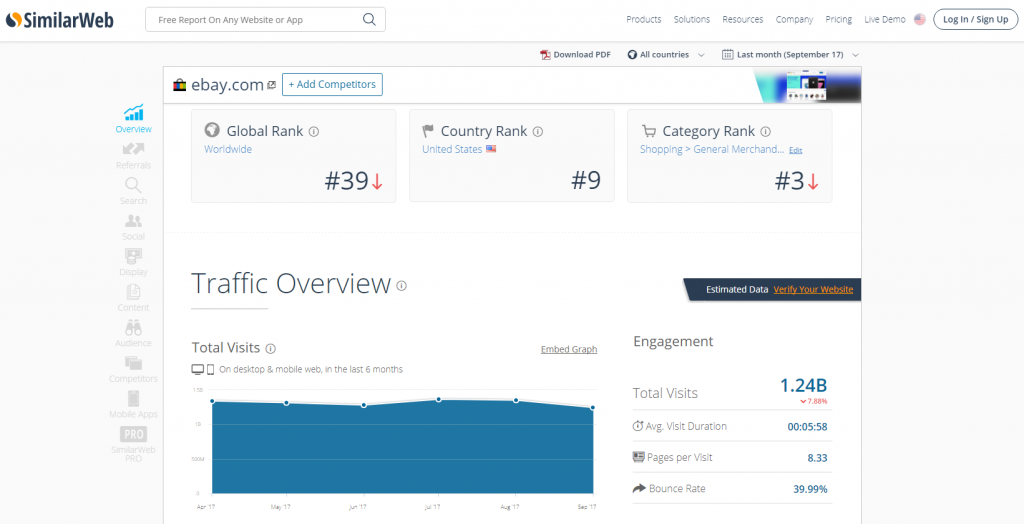
SimilarWeb’s paid tool is extremely expensive but gets you a ridiculous look at your competitors’ activity, including even their conversion activities. Nonetheless, the free tool is nothing to scoff at.
With the free tool, you can get insight into competitors overall activity, their inbound channels, their activity in paid search and display ads, and even search strings (not even google published those anymore).
Rank Tracking Tools
Rank tracking is a crucial aspect of any tactical SEO initiative. If you don’t know how your activities are affecting ranking, how do you know if you are being successful, or perhaps even doing harm?
Unfortunately for the frugal SEO, there aren’t many free ranking tracking tools in place. This is because large-scale rank tracking needs to use lots of proxies (to scrape Google) and cloud hosting to store the data, and companies generally don’t want to give it away for free.
There are a few desktop apps that can handle regular rank tracking for you. Let’s take a look!
#16 Rankerizer
Brought to you by the same people that started iWriter, they are experienced Internet Marketers and know what SEO needs.
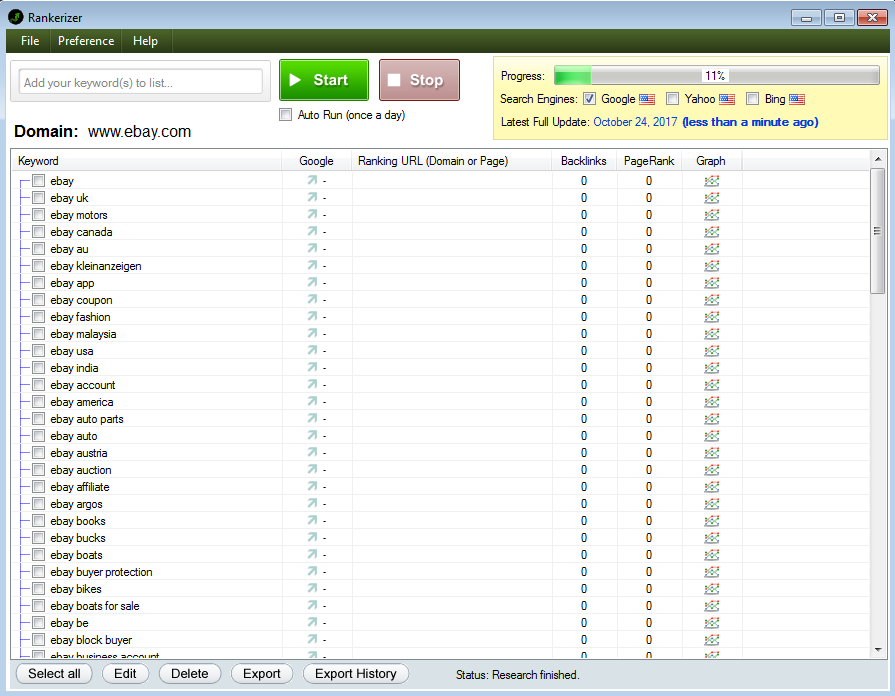
Like any desktop based application, you risk burning your IP if you check too many rankings too fast. So use proxies if you are going to be hitting this hard.
#17 SEOBook Rank Checker

Many people might be familiar with the SEOBook brand (and in fact there is an actual SEO Book, if you can track down a copy it’s well worth the read).
SEOBook has lots of free bits and pieces, including their rank tracker add-on. It integrates with Mozilla, so it’s useful to run a quick check or schedule a rank tracker to run every day or every week.
From what I could find, it does not support proxies. This means you could run into issues with your IP getting banned, so go easy and only use for ad-hoc checks of 10 or fewer keywords.
Conversion Rate Optimization Tools
Conversion Rate Optimization (CRO) is the most important process in large scale web publishing endeavours because it helps you go beyond simple SEO and take full advantage of all inbound channels (paid, referral, social, etc.).
#18 Google Optimize
It is legitimately a free multivariate testing tool that integrates fully with Google Analytics. It allows for a visual editor where you can point and click to make changes to your design and does all the statistical calculations for you.
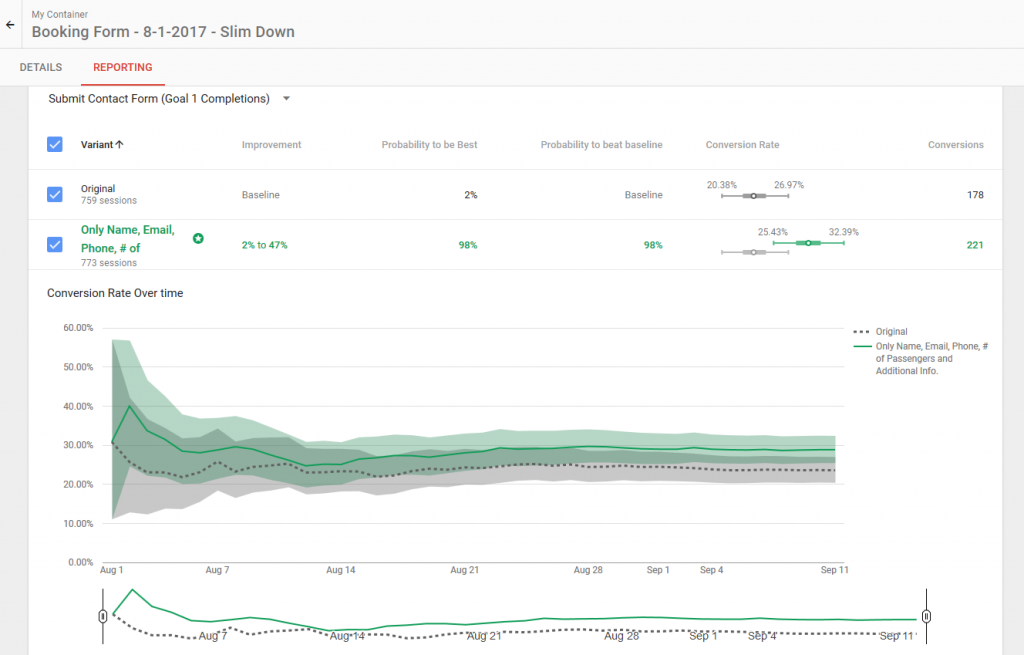
Truly a gift that such a powerful software is available for free.
Structured Data Tools
Schema is a rage nowadays. But it can be very annoying to draft it, get it right, check it and implement it.
Thankfully there are plenty of free tools that allow you to both copy/paste your preferred schema, and check whether it’s valid.
#19 Google Structured Data Testing Tool
Google has provided a wonderful testing tool to check whether your structure data is error free.
You can enter either a URL (like below) or copy/paste code directly into the tool. Here’s what Ebay.com looks like when entered into the tool:
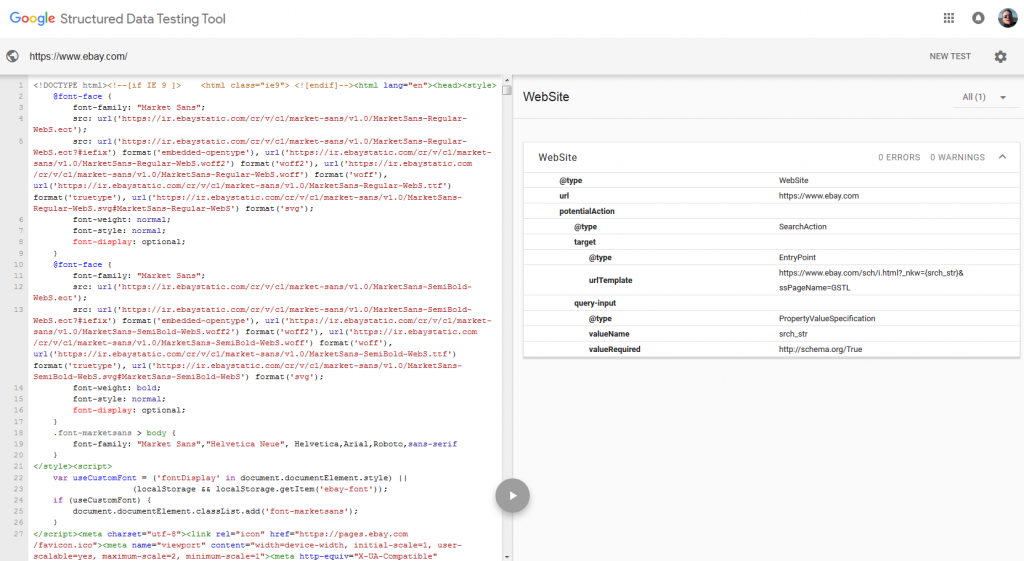
This tool is not optional if you are using Schema markup. Don’t expect anyone or any tool to produce error-free code, make sure to run everything through this tool before going live.
#20 JSON-LD Schema Markup Generator
This handy tool was put together by a smart web developer J.D. Flynn. It takes in simple data and spits out some of the more common JSON-LD markups.

It’s not as extensive as some other options, but that’s a good thing! Schema can go on forever if you don’t limit it, and keeping things simple is better in my opinion.
#21 Steal our JSON
Last, but certainly not the least, on our list, is Steal our JSON. Just like its name implies, it’s a collection of JSON-LD code snippets that you can copy and paste. This is perfect for some schema that isn’t as straightforward as Name, Address, and Telephone.
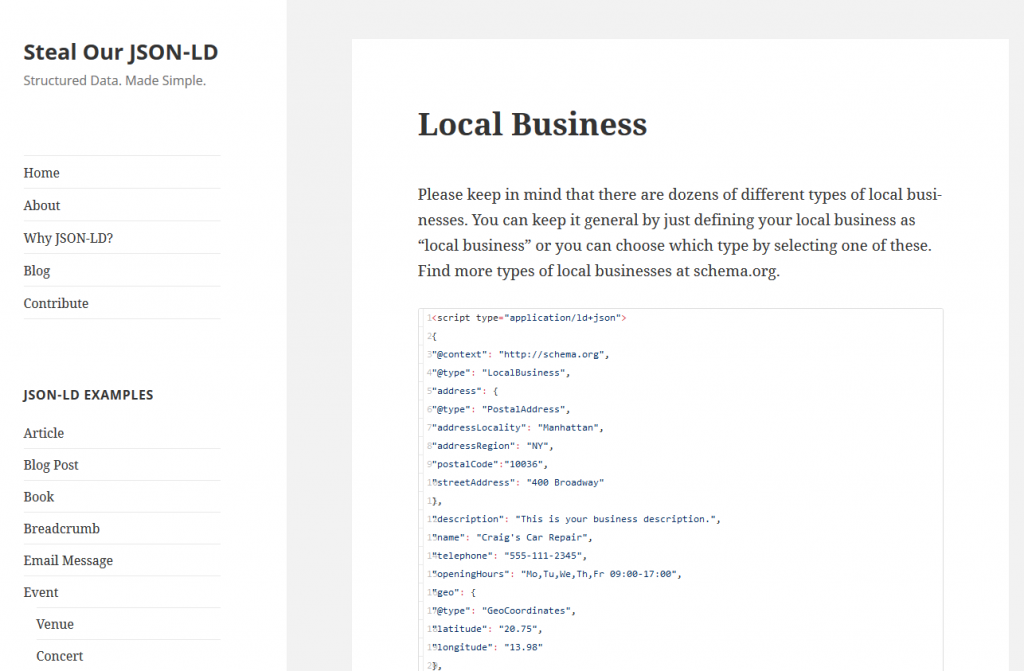
I’ve personally used this for authorship markup (which can get confusing), as well as a few others. It’s a goldmine for all types of Schema, a total gift to be offered for free.
Conclusion
Well, that’s it, 21 of the best tools for SEO, and all for free. Using these tools and some old-fashioned elbow grease, any intrepid Internet marketer can make their way through the competitive landscape of the interwebs and find success.



Write a Comment